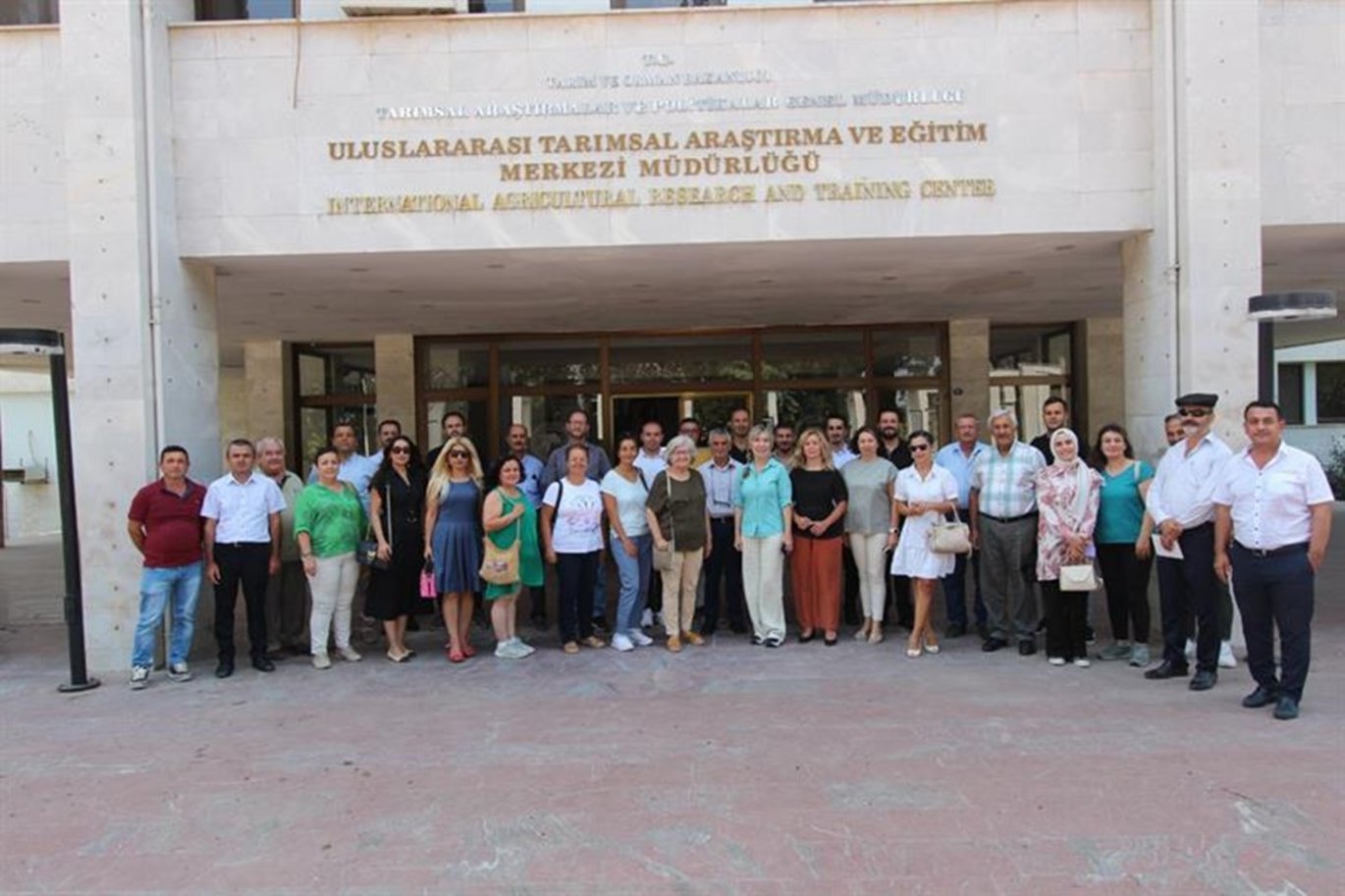TAGEM Spearheads Initiatives to Foster Climate Resilience and Sustainable Agriculture
TAGEM's workshops and training sessions unveil innovative strategies to combat climate change, showcasing groundbreaking EU HORIZON 2020 project outcomes and fostering collaboration across agriculture, ecology, and sustainability. Read about a variety of activities held under the EJP SOIL umbrella.

In a series of dynamic workshops and training sessions, the General Directorate of Agricultural Research and Policies (TAGEM) is leading the charge in advancing climate resilience and sustainable agriculture practices. These initiatives, aimed at equipping stakeholders with cutting-edge knowledge and practices, underscore TAGEM's commitment to ecological balance and agricultural sustainability.
Empowering Through Agroecological Training
On August 10, 2023, TAGEM's International Agricultural Research And Training Center (UTAEM) in Izmir became a hub of learning with the "Climate Change Resilient Agroecological Approaches Training." This specialized session, requested by the İzmir Provincial Directorate of Agriculture and Forestry, drew in 33 participants, including farmers, agricultural consultants, and engineers. They were immersed in discussions on climate-resilient agricultural techniques, organic and regenerative farming, sustainable livestock management, and comprehensive agroecology management. The training also spotlighted the ambitions and findings of various EJP Soil Projects under the EU HORIZON 2020 umbrella, engaging attendees with the forefront of agricultural research.
Workshop on Climate Resilience in Agriculture
Following the educational momentum, UTAEM hosted the "Workshop on Climate Change Resilient Practices in Sustainable Agricultural Systems" on October 26-27. This event, a collaborative effort with Ege University's Faculty of Agriculture and the Ecological Agriculture Organization Association, attracted a diverse group of 48 participants. The workshop offered insights into climate change mitigation and showcased innovative practices in sustainable agriculture. Highlighting the event were presentations by esteemed guest speakers, Mohamed EL Sabry of Cairo University and Marjoleine Hanegraaf of Wageningen University, alongside a field visit to UTAEM's regenerative agriculture project in cotton. This gathering not only facilitated knowledge exchange but also bolstered the community's commitment to sustainable practices.
Focusing on Soil Health for Sustainable Agriculture
GAPTAEM Institute's "Soil Health for Sustainable Agriculture Workshop" on December 11, 2023, marked another significant stride towards ecological sustainability. Held in Şanlıurfa, the workshop convened around 120 stakeholders to delve into soil health and its pivotal role in agroecological systems. The session, part of the "INTO-DIALOGUE" project, featured enlightening talks on regional soil challenges, input management, and actionable strategies for soil health improvement. The workshop fostered a collaborative atmosphere where researchers, policymakers, and farmers could openly discuss current issues and explore viable solutions, reinforcing the community's resolve to nurture soil health.
National Hub Meeting Enhances Soil Monitoring Efforts
Rounding off the year, TAGEM hosted a crucial National Hub Meeting and Workshop on December 18-19, 2023, focusing on soil monitoring advancements. The assembly brought together 40 experts from various universities, associations, and research institutes across Türkiye. Discussions centered on harmonizing soil data, the significance of soil information systems, and the development of a sustainable national soil monitoring framework. This gathering highlighted TAGEM's pivotal role in enhancing soil health management and data integration, setting a robust foundation for future agricultural resilience.
Through these workshops and training sessions, TAGEM is not only reinforcing Türkiye's agricultural sector's adaptability and resilience but also contributing significantly to the global dialogue on sustainable farming practices and climate-smart agriculture.